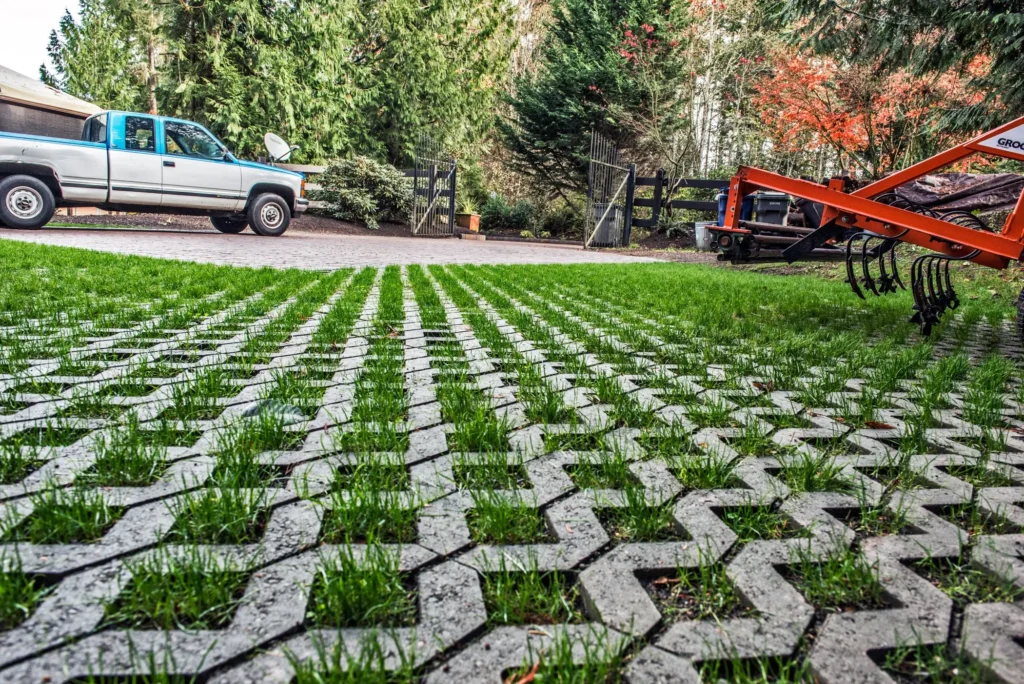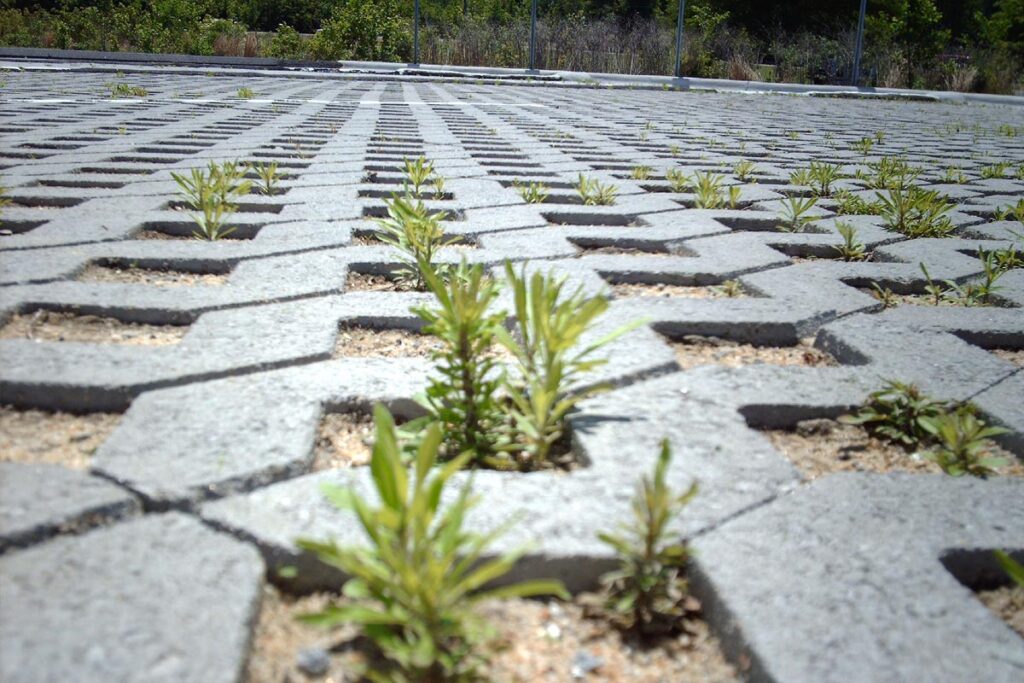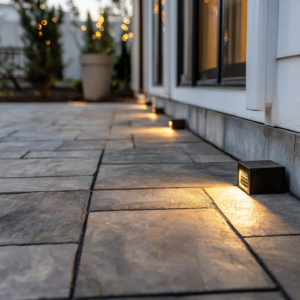In an era where environmental sustainability is paramount, permeable pavers have emerged as a smart and eco-friendly choice for hardscaping and landscaping projects. These innovative pavers are revolutionizing the way we think about driveways, walkways, and parking lots. But what are permeable pavers exactly?
Unlike traditional impervious surfaces, permeable pavers offer a solution that mitigates stormwater runoff, reduces flooding, and promotes groundwater recharge. This makes them a much more sustainable option, as it simulates the way natural land interacts with water.
In this article, we’ll explore what permeable pavers are, how they work, and the many benefits they bring to both property owners and the environment.
You may also like: Pazer Size Chart – Definitive Guide

Jump to:
What are permeable pavers?
Permeable pavers are an innovative and environmentally conscious type of paving material specifically engineered to enable the natural passage of water through them, allowing it to seep into the ground below.
These pavers have gained significant popularity in recent years due to their potential to mitigate various environmental and infrastructural challenges associated with traditional impermeable surfaces like concrete or asphalt.
They are manufactured using a diverse range of materials, each with its unique advantages. Some common materials include concrete, asphalt, and plastic, among others. Despite their varying composition, all types of permeable pavers share a fundamental objective: to minimize surface runoff and contribute to sustainable water management practices.
The key feature that sets permeable pavers apart from traditional pavement is their porous nature. These pavers are designed with interconnected voids or gaps that allow rainwater, snowmelt, and other forms of precipitation to infiltrate through them.
Once the water enters the paver system, it moves down through the paving material and into the underlying substrate, typically a base of gravel or crushed stone.
Key benefits of permeable pavers
Permeable pavers offer a wide array of environmental benefits – the biggest one being their capacity to store water.
The gravel or crushed stone base used during the installation acts as a reservoir, temporarily storing water before it gradually infiltrates into the ground. This storage capacity helps prevent immediate flooding during heavy rain events and allows for controlled release of water over time, reducing the strain on stormwater management systems.
Even better, with the proper filtering techniques, it can even be used to recycle water from the rain.
As the water percolates through the base, it undergoes the filtration process, which removes pollutants, sediments, and contaminants from the water, improving its quality before it recharges local aquifers or enters nearby water bodies.
This filtration capability makes permeable pavers an effective tool for managing urban runoff and improving water quality. For that reason, one of the most significant benefits of permeable pavers is their ability to recharge groundwater aquifers.
By allowing water to penetrate the soil, these pavers help replenish underground water sources, which is especially important in regions facing water scarcity or where traditional impermeable surfaces have disrupted natural water flow patterns.
Aside from that, permeable pavers can also greatly contribute to reducing the urban heat island effect.
Unlike conventional asphalt or concrete surfaces that absorb and radiate heat, permeable pavers remain cooler because of the moisture in the ground beneath them. This can help create more comfortable urban environments, especially during hot summer months.
Permeable pavers are effective in preventing soil erosion, as they allow rainwater to penetrate the ground rather than running off and carrying away topsoil. This is particularly valuable in landscaping and construction projects where erosion control is essential.

How permeable pavers work
The key to the functionality of permeable pavers lies in their porous surface. These pavers are specifically engineered with an interconnected network of voids or openings that permit water to flow through them.
The shape and arrangement of these openings can vary depending on the design and manufacturer. Some pavers have small gaps between individual units, while others incorporate holes or channels within the paver system itself. These openings are strategically placed to facilitate water infiltration.
Beneath the permeable pavers exists a critical component, known as the substrate layer. This layer typically consists of crushed stone or aggregate, which serves a dual purpose.
First, it acts as a reservoir for rainwater, temporarily storing the water that flows through the pavers. This storage capacity is particularly valuable during heavy rain events – when the rate of water runoff can overwhelm traditional stormwater drainage systems.
Second, the substrate layer filters and purifies the water as it percolates through it, removing impurities and pollutants.
When precipitation occurs, whether it’s rain or melting snow, the water is not thwarted by impermeable surfaces like traditional concrete or asphalt. Instead, it effortlessly flows through the porous pavers, guided by gravity.
Once the water reaches the substrate layer, it starts to infiltrate gradually into the underlying soil. This process closely mimics natural water infiltration – which takes place when rainwater penetrates the ground and replenishes groundwater aquifers.

Start your permeable paver installation today
Permeable pavers represent a sustainable solution for modern landscaping and hardscaping projects. Their ability to manage stormwater runoff, promote groundwater recharge, and improve water quality makes them a valuable addition to urban and suburban environments.
As the world becomes increasingly focused on environmental conservation and sustainable development, permeable pavers are poised to play a pivotal role in creating greener, more resilient communities.
And to make sure you end up with a paver installation that takes the most possible advantages of permeable pavers, your best course of action is to hire professional hardscape specialists to do it for you.
Unlike a regular paver installation, which can be tackled from a DIY perspective given enough preparation planning, permeable paver installations are complex beasts that require expertise and experience. So don’t take any chances and hire professionals you can trust around your area.
And if you happen to be around Sarasota County, FL, we here at JS Brick can gladly provide that help for you. Throughout our 23 years of experience, we have made countless permeable paver installations, so that is something we know very well.
You can contact us anytime for a free estimate on our services and start your installation today!



